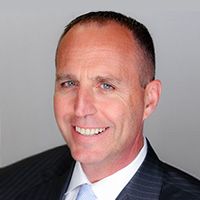Retiring in the Midst of COVID-19
Take stock of your priorities in these challenging times. I did, and after doing so, I decided retiring early is the right decision for me.

Profit and prosper with the best of Kiplinger's advice on investing, taxes, retirement, personal finance and much more. Delivered daily. Enter your email in the box and click Sign Me Up.
You are now subscribed
Your newsletter sign-up was successful
Want to add more newsletters?

Delivered daily
Kiplinger Today
Profit and prosper with the best of Kiplinger's advice on investing, taxes, retirement, personal finance and much more delivered daily. Smart money moves start here.

Sent five days a week
Kiplinger A Step Ahead
Get practical help to make better financial decisions in your everyday life, from spending to savings on top deals.

Delivered daily
Kiplinger Closing Bell
Get today's biggest financial and investing headlines delivered to your inbox every day the U.S. stock market is open.

Sent twice a week
Kiplinger Adviser Intel
Financial pros across the country share best practices and fresh tactics to preserve and grow your wealth.

Delivered weekly
Kiplinger Tax Tips
Trim your federal and state tax bills with practical tax-planning and tax-cutting strategies.

Sent twice a week
Kiplinger Retirement Tips
Your twice-a-week guide to planning and enjoying a financially secure and richly rewarding retirement

Sent bimonthly.
Kiplinger Adviser Angle
Insights for advisers, wealth managers and other financial professionals.

Sent twice a week
Kiplinger Investing Weekly
Your twice-a-week roundup of promising stocks, funds, companies and industries you should consider, ones you should avoid, and why.

Sent weekly for six weeks
Kiplinger Invest for Retirement
Your step-by-step six-part series on how to invest for retirement, from devising a successful strategy to exactly which investments to choose.
The spread of COVID-19 has most Americans understandably concerned — foremost about their health and safety, but for many of us, our finances aren’t far behind. Given increased market volatility, low interest rates and rising unemployment, retirement is likely one of the furthest things from our minds. But based on a slew of factors, and despite the uncertainty, it’s my time to retire, focus on my health, and eventually transition into my “second act.”
As I shared previously, I returned from vacation last fall sick as a dog. Despite taking a leave from work to focus on recovery, I’m still not quite feeling like myself. Because I split time between my home in Washington state and my office in New York, I started thinking about how to best manage my health while balancing personal and professional priorities. After significant and difficult deliberation, I realized my heart was in Washington and my family needed me there — healthy — and I began planning for an earlier-than-expected retirement.
Whether a health-related circumstance or a career shift sparks the need to accelerate your retirement plans, here are some of the key questions to consider.
From just $107.88 $24.99 for Kiplinger Personal Finance
Become a smarter, better informed investor. Subscribe from just $107.88 $24.99, plus get up to 4 Special Issues

Sign up for Kiplinger’s Free Newsletters
Profit and prosper with the best of expert advice on investing, taxes, retirement, personal finance and more - straight to your e-mail.
Profit and prosper with the best of expert advice - straight to your e-mail.
Questions to consider when thinking about an earlier retirement
While I’ve had a retirement plan in place for 25+ years, the prospect of a firm end date on my current professional life made things feel “real.” My wife and I were sure to review a few key areas of our portfolio before we reached a decision, asking ourselves the following:
What kind of lifestyle will we be able to maintain if I retire now?
Because we planned for me to work for another five years, we worked with our financial professional — yes, financial professionals do often seek out the help of financial professionals, just as doctors see other physicians to maintain their own health — to determine how this would impact the plans and visions we had in mind. We needed to understand what “living within our means” would look like on this revised timeline.
Budgets become incredibly important in this process as we transition into retirement, reinforcing what fixed expenses we would need to maintain, what additional costs we would incur, and how we could navigate them within our new spending parameters.
What types of guaranteed income vehicles do we have in place?
In building out our new budget, we reviewed any pensions, lifetime guaranteed income products, and other assets in our portfolio to fully understand what we will be able to spend and allocate in addition to our longer-term and emergency savings funds.
Are our kids covered until they are on their own?
With our children currently in college, we had to make sure our 529 college savings plans and education fund would be able to cover what we had anticipated, knowing that we would be adjusting to a reduced income.
What will this mean for our benefits?
We reviewed our family’s health insurance policies and took the proper steps to ensure that once I retire, the family will still have the right coverage in place for the years ahead. This included reviewing our life, health, dental and vision benefits, as well as any corporate discounts or memberships I received through my employer. When making this transition, partnering with your current human resources department will make this process easier.
How will this impact my spouse’s retirement?
My wife, thankfully, really enjoys her job and is content with her retirement timeline. While we shifted around our plans to adapt to my new circumstances, we are still fortunate and able to consider her income and career trajectory in tandem with my pension, retirement savings and any potential “second act” I may pursue in the future.
Parting words of financial wisdom
I’ve loved having the opportunity to reflect on important financial decisions and topics, highlighting my perspective and top tips for Kiplinger’s readers. Before I sign off for now to continue focusing on recovery and enjoying some much-needed bonus time with my family, I want to leave you with my three go-to pieces of advice:
Start with the basics – and stick to them.
A budget and thorough understanding of what living within your means looks and feels like is the bedrock of any stable financial plan. Saving and planning for large expenses will empower you to both have the things you want and need (perhaps a vacation or upgrade to your appliances) and also avoid creating unnecessary consumer debt. An old-school budget will open up a world of financial opportunities over time.
Take a protection-first approach to your financial plan.
Understand the role of life insurance and guaranteed products for your family to prevent financial distress should the unexpected occur. The peace of mind and long-term benefits will give you the confidence to continue saving, investing and spending without concern or fear of creating debt for your loved ones.
Find a financial professional you trust.
The value of human guidance is unparalleled by any software or app my kids try to convince me to try. It’s incredibly important and helpful to have a trusted partner through the different stages of life and the various financial commitments and adjustments that may accompany them.
These have been the bedrocks of my financial plan, and they’ve held true through a number of market cycles, including the current coronavirus pandemic. I hope they can be helpful for yours, too.
Profit and prosper with the best of Kiplinger's advice on investing, taxes, retirement, personal finance and much more. Delivered daily. Enter your email in the box and click Sign Me Up.

Brian G. Madgett, CLU®, ChFC®, is Head of Consumer Education at New York Life. In this role, Brian helps families across the country learn how to build better futures, rooted in a protection-first financial plan, for themselves and those they love. Brian began his nearly 30-year career as a New York Life financial specialist and has since held several leadership roles within the company. He earned his Bachelor of Science degree from John Jay College.
-
 Betting on Super Bowl 2026? New IRS Tax Changes Could Cost You
Betting on Super Bowl 2026? New IRS Tax Changes Could Cost YouTaxable Income When Super Bowl LX hype fades, some fans may be surprised to learn that sports betting tax rules have shifted.
-
 How Much It Costs to Host a Super Bowl Party in 2026
How Much It Costs to Host a Super Bowl Party in 2026Hosting a Super Bowl party in 2026 could cost you. Here's a breakdown of food, drink and entertainment costs — plus ways to save.
-
 3 Reasons to Use a 5-Year CD As You Approach Retirement
3 Reasons to Use a 5-Year CD As You Approach RetirementA five-year CD can help you reach other milestones as you approach retirement.
-
 The 4 Estate Planning Documents Every High-Net-Worth Family Needs (Not Just a Will)
The 4 Estate Planning Documents Every High-Net-Worth Family Needs (Not Just a Will)The key to successful estate planning for HNW families isn't just drafting these four documents, but ensuring they're current and immediately accessible.
-
 Love and Legacy: What Couples Rarely Talk About (But Should)
Love and Legacy: What Couples Rarely Talk About (But Should)Couples who talk openly about finances, including estate planning, are more likely to head into retirement joyfully. How can you get the conversation going?
-
 How to Get the Fair Value for Your Shares When You Are in the Minority Vote on a Sale of Substantially All Corporate Assets
How to Get the Fair Value for Your Shares When You Are in the Minority Vote on a Sale of Substantially All Corporate AssetsWhen a sale of substantially all corporate assets is approved by majority vote, shareholders on the losing side of the vote should understand their rights.
-
 How to Add a Pet Trust to Your Estate Plan: Don't Leave Your Best Friend to Chance
How to Add a Pet Trust to Your Estate Plan: Don't Leave Your Best Friend to ChanceAdding a pet trust to your estate plan can ensure your pets are properly looked after when you're no longer able to care for them. This is how to go about it.
-
 Want to Avoid Leaving Chaos in Your Wake? Don't Leave Behind an Outdated Estate Plan
Want to Avoid Leaving Chaos in Your Wake? Don't Leave Behind an Outdated Estate PlanAn outdated or incomplete estate plan could cause confusion for those handling your affairs at a difficult time. This guide highlights what to update and when.
-
 I'm a Financial Adviser: This Is Why I Became an Advocate for Fee-Only Financial Advice
I'm a Financial Adviser: This Is Why I Became an Advocate for Fee-Only Financial AdviceCan financial advisers who earn commissions on product sales give clients the best advice? For one professional, changing track was the clear choice.
-
 I Met With 100-Plus Advisers to Develop This Road Map for Adopting AI
I Met With 100-Plus Advisers to Develop This Road Map for Adopting AIFor financial advisers eager to embrace AI but unsure where to start, this road map will help you integrate the right tools and safeguards into your work.
-
 The Referral Revolution: How to Grow Your Business With Trust
The Referral Revolution: How to Grow Your Business With TrustYou can attract ideal clients by focusing on value and leveraging your current relationships to create a referral-based practice.